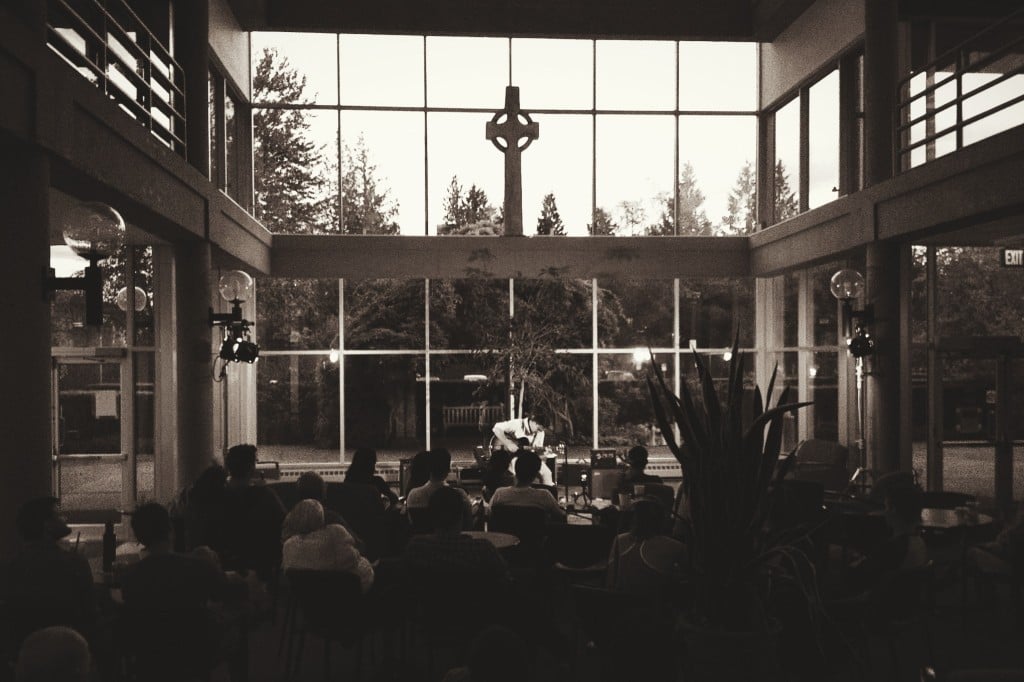
(The late David Foster Wallace’s 2005 “This Is Water” Kenyon College commencement speech drones in my headphones and Rebel Without a Cause plays on mute in the corner; it is chilling to listen to DFW speak descriptively about suicide and I am arrogant to enough to find it all quite underwhelming, in a very comforting, soothing, and self-assuring way.)
A young professor from Fordham showed up late to my talk in New York a month ago. He asked me a very serious question though, one of those questions that isn’t really a question but just wants to hear more. A meta-question. He asks me to say something about rigor. What I think it is and how it plays a role in my work (especially, I say to myself, in the rather folksy, anthropological sort of metaphysics my philosophical approach is trying to pull off). I feel defensive but also excited to talk about something I wasn’t expecting to talk about.
The first thing I say is clarity. It is hard to be clear, mainly because being clear about things that are not clear to begin with is itself unclear and even that is a poor way to put it. Clarity is about showing, not saying, and rigor is the degree to which you do it and the quality of its execution. But this not so much rigor as it is communication and description. Important, but not rigor. It is not the sense of rigor that is most rigorous. Sure, work and craft and detail, when added together and summarized into a tight little bundle, neat but not too neat, that makes sense, seems to be what rigor is all about, but it’s not. It is more like the proper result of a more rigorous notion of rigor.
(DFW is done now, silence takes over and the switchblade fight scene is about to start; Coltrane’s Transition intrudes forcefully.)
The next thing I say is love. The professor smiles, but I am not sure whether he buys it or not. I don’t recall what I said after that but I do remember that I was trying to get away from the analytic/continental divide and the false, in my mind, division between what anthropology and philosophy are chasing after.
I’ve lost my train of thought.
*
I write mainly because it tracks my thoughts in the most concrete way I have available. It is like a seismographic reading, leaving a trace of thinking to be thought about and edited and revised and hated later. It is not so much that I have something to say, it more the fact that I have something to think about and writing is the record of that. Of course this also forces me to think about the thinking of writing, and its presentation and efficacy. Verve. Appeal. Taste. These aesthetic considerations, however, are not in the front-end of my mind, wherever that is exactly; they swirl and dart in and out and around the process. The main thing is to try to type the words just as they are being thought of, as though I was talking to myself.
Writing as a form a speech is important, I think, for more its rhetorical effects. It forces a form of listening that searches for a monologue that lives deep inside and is hard to hear sometimes. But it is naive to think that this input-output computation is what is really going on.
(The car off the cliff scene is approaching; Coltrane plays on.)
*
Rigor has acquired a rather extravagant name and reputation. And tedious, in the worst sense of the term. Rubrics and fake plans and rules abound. This is not to say that everything goes. It is simply to point out that most of what poses as a rule or a standard is an excuse for not giving a reasonable explanation or is nothing more or less than a brutish appeal to authority.
In schools there is much hullabaloo about standards, accountability, and testing. The sad fact is that many teachers and most administrators who submit their students to these measurements could not pass them with flying colors. The sadder fact is that these standards have very low standards in two senses: (1) in the literal sense that they ask very little of the educated mind, and (2) that there are no clearly justified standards for these standards.
Perhaps the biggest problem is this: these fake standards often prevent students from discovering the real standards, the real rigor, of thinking and doing the things they need to do well. I sometimes think this is intentional on the part of schools, but other times I am unwilling to give them that much credit.
It is strange that the places with the most standards also seem to produce the lowest standards, and the ones with the fewest often result in the highest.
*
Whatever it is that rigor is lives in a place that is neither soft and easy nor hard and impossible, but sometimes it needs to be light and penetrable and other times it needs to be thick, heavy, and cold. We are stuck between sentimental relativists and dogmatic absolutists, and they both have good points to make, but we need to be more rigorous than just one or the other or both or neither.
I think rigor is about attachment to diluted perversions of rigor, and processes and methods with a false messianic hope that this will be the One, and being able to let them go with very little — but not nothing — there to replace them.
Sorry. I’m not a theologian, but I do know this: rigor cannot work without hope.
(It occurs to me that James Dean’s character cries and throw a fit at the opening and ending scenes; Bill Frisell plays John Lennon at the La Villete Jazz Festival.)















